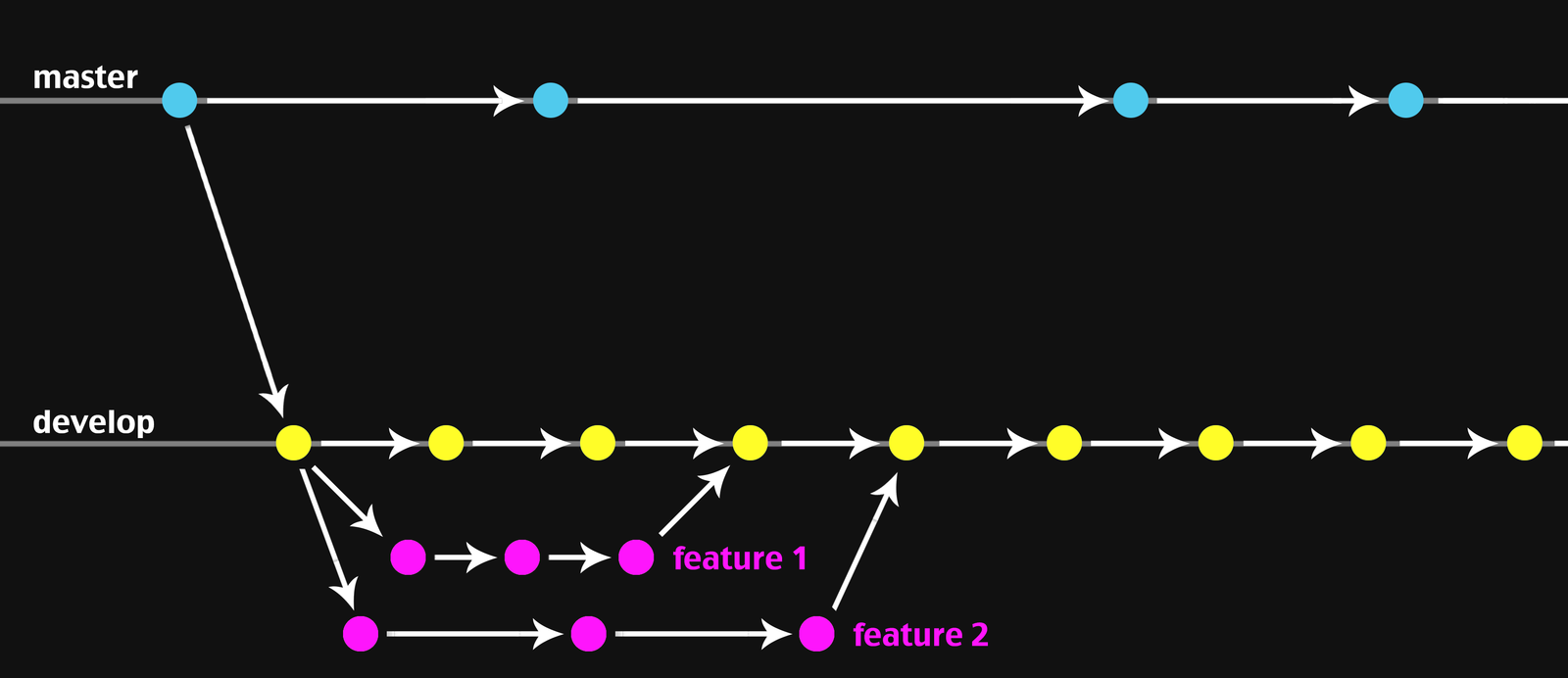
Mathieu Spillebeen
Enlightenment:
Git flow
Overview
1. The problem
2. The solution in theory
3. The practical solution
Why do we use git
PRO
- Open source
- Fast
- Decentralised
- Efficient
- Easy to learn
CONTRA
- Fear of branches
- Fear of merge conflicts
1. The problem
One branch fits all!
One-person linear approach
One-environment
Unreadable history
Occasional extra branches

2. The solution in theory
A set of guidelines .
You can still do everything.
Sanitised documented workflow.
No more explanation.

2.1 The environments problem

- Never ending main-branches
- Every commit ready for deployment
1 local environment + 2 remote environments
2.2 The purpose problem
2.2.1 You want to debug something on live or staging.
2.2.2 You are working on a tricky/new feature.
2.2.3 You are fixing feedback based on staging env.
2.2.4 You are quickly fixing a tiny bug on live.


2.2.2 You are working on a tricky/new feature
- The first secondary branch: Feature-branch!
- No unfinished work for reviewers to see.
- No interference with other developers.
- No harm in trying stuff out.

- Always on develop
- Delete the branch after finishing
- How to push to live?

2.2.3 You are fixing feedback based on staging env.
- Controled pieces of code forming live-releases
- Release-branch!
- All the features that are included inside the release should be reviewed

2.2.3 You are fixing feedback based on staging env.
- Choose the point in time.
- Periodical back-merges.

2.2.4 You are quickly fixing a tiny bug on live.
- The last secondary branch: hotfix-branch!
- For avoiding the entire control process.
- Only stuff that doesn't need reviewing.

2.3 So what does this all mean?
- 2 main, 3 secondary braches
- A control system for developers, reviewers en clients.
- Live will (almost) never be broken
- Clear and enlightened history for easy debugging.

2.4 Tagging conventions
2.4 Naming conventions
Production branch: master
Development branch: develop
Feature branch prefix: feature/
Release branch prefix: release/
Hotfix branch prefix: hotfix/
Start to Git Flow
Further reading:
nvie.com/posts/a-successful-git-branching-model/
Get a free GUI for faster learning:
Questions before I procede?
3. The practical solution
BEFORE:
- Forgotten branches
- No clarity
- Scary releases
- Unclear merge conflicts


3. The practical solution
AFTER:
- Clear history
- Easy releases
- Clear merge conflicts


Merge conflicts
Develop


Feature
Merge solutions


Git Flow in Drupal
Drupal 6 & 7
Staging



Live


Features
Features

Git Flow in Drupal
Drupal 8
Staging



Live


Config
manager

Config
manager
Scalable !== Fast
Full blown structure is great for big projects


No reviewer

if (FE == 1 && BE == 1)
FE = mergers
BE = branchers

If (FE > 1 || BE > 1)
Because now there is a bigger chance of people working in the same lines of code
Put it all in context
Remember the one branch fits all solution?
Git should stay in the background
Git flow is used on every scale, but is experienced as slow on small projects.
Using Full blown Git Flow on small projects is like putting everything in features for small projects.
Conclusion
Adapt Git Flow to your own needs.
It makes sure developers think, before they create.
There are a couple of Git workflows too choose from:
atlassian.com/git/tutorials/comparing-workflows

Questions
@mathieuSpil
mathieu.spillebeen@gmail.com

ENLIGHTENMENT: GIT FLOW
By Mathieu Spillebeen
ENLIGHTENMENT: GIT FLOW
Drupalcamp Belgium presentation about the concept of Git Flow
- 2,157


